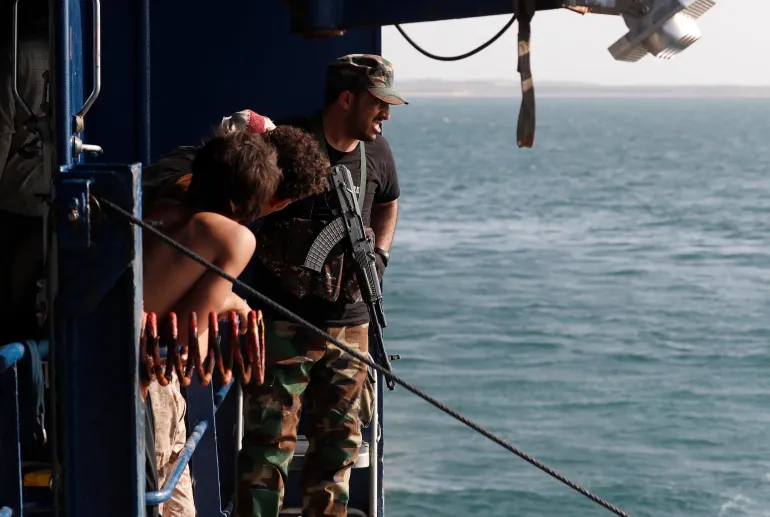Mohammed al-Bukhaiti, a senior official of the Houthis has stated that the Yemeni group will continue targeting Israel-linked ships in the Red Sea, “even if America succeeds in mobilising the entire world” to stop them.
This came in response as the U.S announced the launch of a new multinational naval task force to patrol Red Sea shipping lanes, which have been rocked by Houthi attacks on more than a dozen vessels during the Gaza war.
Their aim is to stop attacks from the Houthi rebels in the Red Sea.
In a post on X, al-Bukhaiti said that the Houthis would only halt attacks on Israel-linked vessels if “crimes in Gaza stop and food, medicines and fuel are allowed to reach its besieged population.”
Hours before al-Bukhaiti’s post, Houthi official Mohammed Abdulsalam told a news agency that the new US-led group in the Red Sea will have no impact on the Houthis’ stance in the Gaza war.
Abdulsalam, who is the group’s chief negotiator, said that the international naval patrol mission meant to safeguard Red Sea shipping lanes is “essentially unnecessary.”
This is because all waters near Yemen are still safe, he said, except for Israel-linked ships or vessels travelling to Israel.
Ten countries are so far part of the naval alliance; Bahrain, Canada, France, Italy, Netherlands, Norway, Seychelles, Spain, the United Kingdom and the United States.
Italy, one of the 10 members of the US-led naval alliance in the Red Sea, said that it will send over one of its frigates to help protect the contentious waters.
“Italy will do its part, together with the international community, to counter the terrorist destabilisation activity of the Houthis,” said Italian Defence Minister Guido Crosetto in a statement.
Kremlin spokesperson, Dmitry Peskov disclosed thatRussia will not participate in the multinational naval task force announced by the US with
“We are not taking part in the operation,” Peskov said.
Yemen’s Houthi rebels have for weeks targeted vessels near Bab al-Mandeb, forcing major shipping and oil companies to suspend operations through the Red Sea.
Yemen’s Houthis have waged attacks on more than a dozen commercial ships they consider to be linked to Israel since the Gaza war broke out, disrupting a key maritime trade channel in the Red Sea.
Rerouted vessels will have to make a longer journey all the way down the east coast of Africa, via the southern tip of the continent, with major implications for global economy and trade.
Swedish company Electrolux has created a task force to find alternative maritime trade routes as vessels passing through the Red Sea fear attacks from Yemen’s Houthi rebels.
An Increase In Inflation Expected
Ahmed Helal, MENA director at The Global Counsel, opined that the “cascading impact” of the current crisis on the Red Sea is on inflation.
Speaking with a news agency, he noted, “The world doesn’t need an inflation shock at this time,” adding that major central banks have been cutting interest rates to combat inflation and bring prices down for consumers.
“But this disruption in a major global trade artery affects regular goods and energy, both oil and natural gas,” he noted.
Helal stressed that Bab al-Mandeb and the Suez Canal have become “increasingly important for natural gas reaching the European continent because of the weaponisation of energy supplies by Russia to Europe”, referencing the Ukraine war.
“But we’ve seen because of these disruptions and because of these attacks by the Houthis in these waters European natural gas prices jump by 12 percent, UK natural gas prices jump by 10 percent, and the price of oil also jumped by 4 percent in the past 24 hours.”
Ahmed Helal
READ ALSO: NDC-NPP “X-Contest” Over Deteriorated Cocoa Roads




















